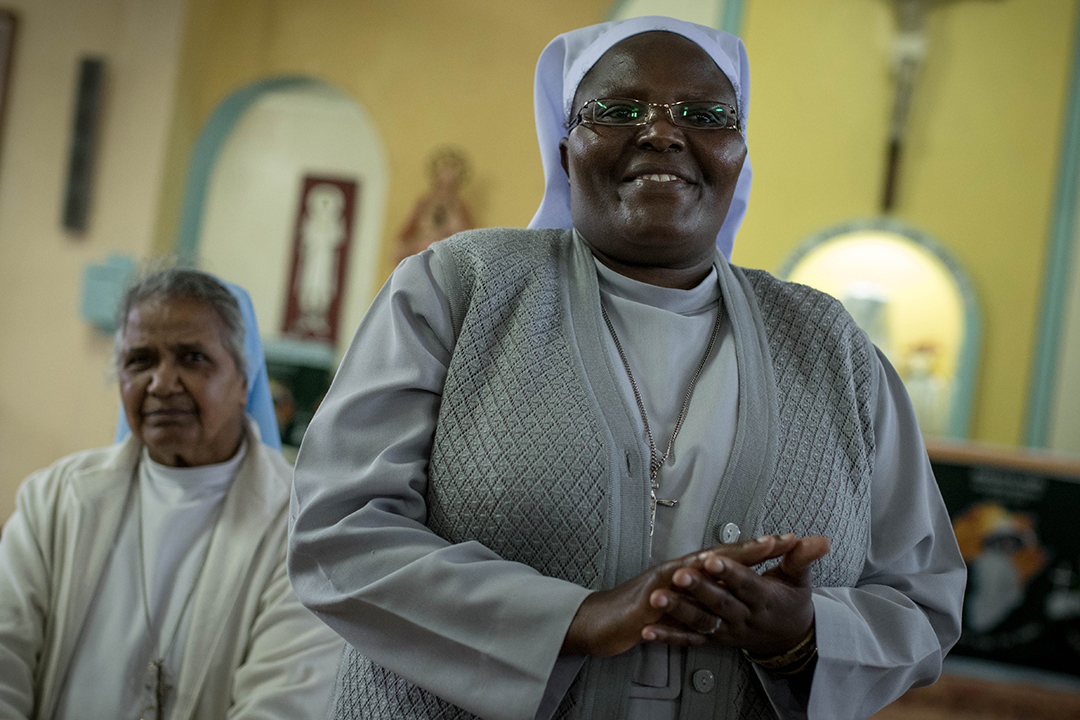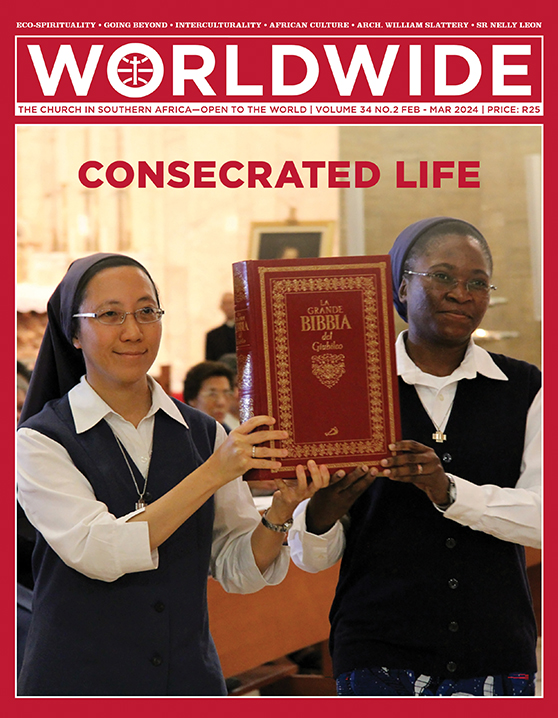
CONSECRATED LIFE
The painting on the front cover entitled “The disciples of Emmaus” reflects our journey of hope. Jesus not only walks with us, but gives us the wisdom to perform our ministries and opens our eyes to see Him in the people that we are serving.
SPECIAL REPORT • INTERCULTURALITY
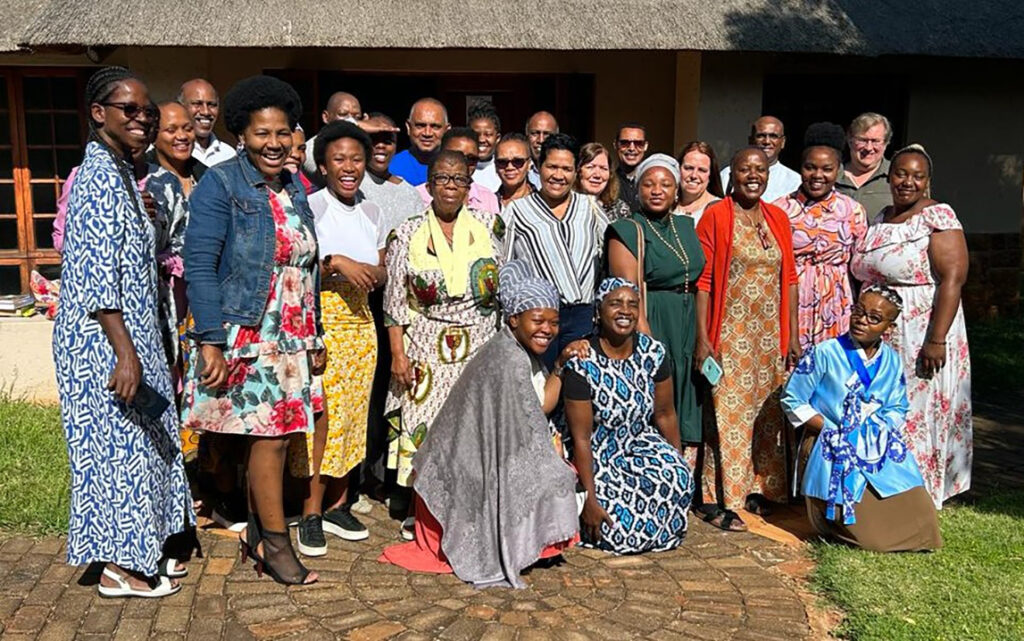
A PROPHETIC CALL TO CONSECRATED LIFE
Interculturality in communities of consecrated members has become a reality and an opportunity to become a sign of the universality and diversity of the family of God. Accepting it as a gift and making a choice to be enriched by it, takes the consecrated person on a journey of growth toward becoming a visible symbol of the values of the Kingdom of God.
BY SR MARIOLINA CATTANEO CMS | JERUSALEM
AN AFRICAN American theologian, James H. Cone (2010), once affirmed that God is not colour-blind, but He/She sees and acknowledges differences and variety. This is a simple statement that speaks of who we are and what our reality entails in relation to the Creator of all, who enjoys and loves diversity.
As Christians who believe in the God of life, we recognize two important facts: we are all fundamentally equal, but also fundamentally different. These two facts are not a contradiction, they in fact bring home the need for stressing our common humanity: as sons and daughters of God.
Equality is a right, which includes the right to diversity.
Equality does not imply uniformity, neither does it mean being identical. Equality is a right, which includes the right to diversity. Therefore, in recognizing our common humanity and our common belonging to the one family of God, we learn to acknowledge that as humans we are all different, as diverse as the realities in which we live, move and grow.
Despite that, we realize that differences create an uneasiness in us; we are comfortable with what we know and what we are used to. Change and difference cause a sense of uncertainty in us which leaves us longing for common ground with which we are familiar and which we cherish.
Consecrated life in a multicultural world
Today’s world is acknowledged as globalized and multicultural because the distance barriers have disappeared through the power of social media, the internet and the ease (for some) to travel. People move, either digitally or physically, and encounter others with different cultural and historical backgrounds. Simultaneously, we live at a time of the resurgence of nationalism, an urge for defining the borders of our identity. Multiculturality is a beautiful word which simply means that we have discovered our differences and that we recognize that we are encountering someone from a diverse community. It does not explain, however, how this acceptance of differences may be played out, how it affects us or enriches us.
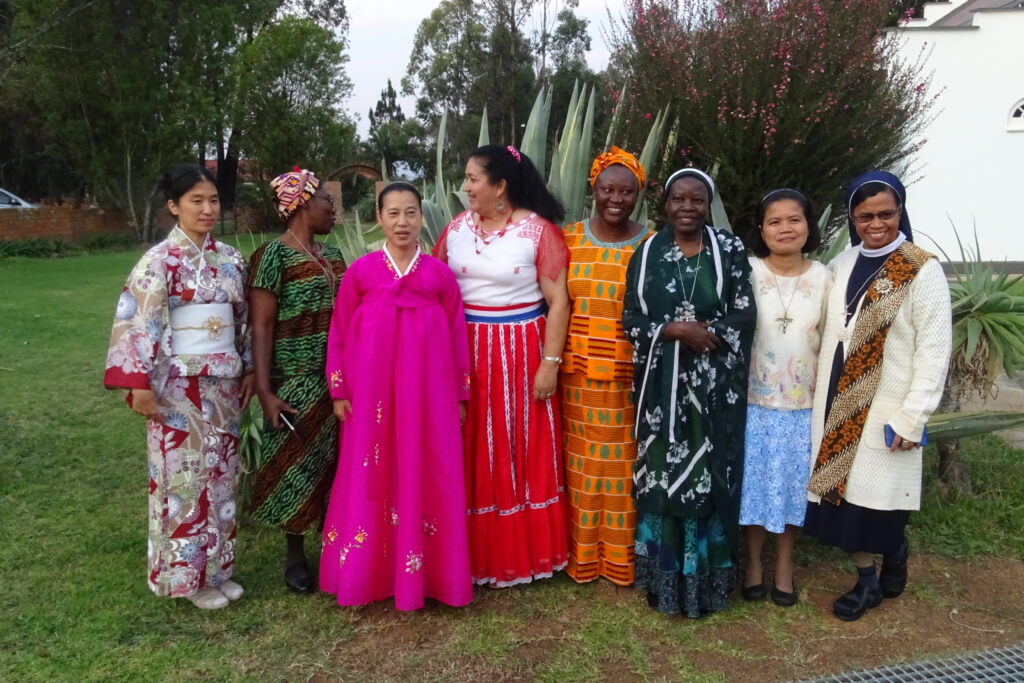
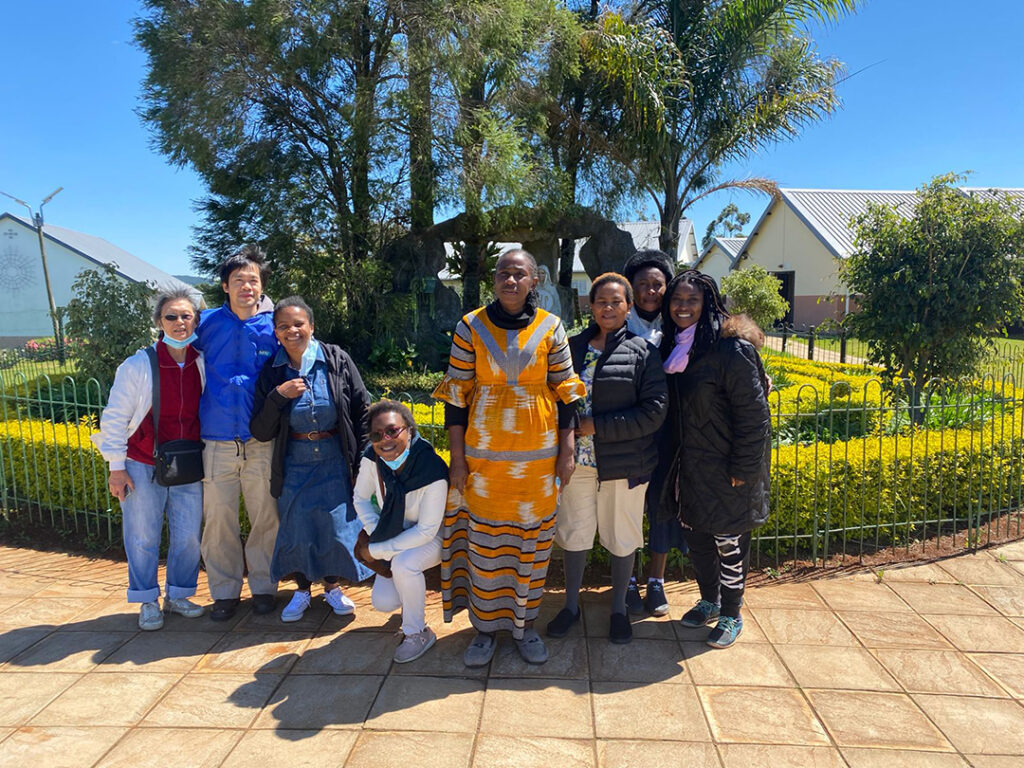
It is important, therefore, that we as Christians, recognize the gift of diversity given to us by our Creator and Saviour, and try to live it out in the world through our commitments, choices and our way of life.
Consecrated life, in today’s world, needs to become a prophetic tool which shows what it means to live with others, who are different, and how this co-existence can become a source for new ways of expressing faith and humanity.
Consecrated life is determined by its constant search for the will of God, by a listening heart which pursues the voice of the Lord in all that exists.
Consecrated life, called to make visible the characteristic traits of the virginal, poor and obedient Jesus, flourishes in the ambience of this search for the face of the Lord and the ways that lead to him (cf. Jn 14:4-6). This search leads to the experience of peace— “in his will is our peace”—which underlies each day’s struggle, because God is God, and His ways and thoughts are not always our ways and thoughts (cf. Is 55:8). The consecrated person, therefore, gives witness to the task, at once joyful and laborious, of the diligent search for the divine will, and for this chooses to use every means available that helps him/her to know it and sustain it while bringing it to fulfilment» (The service of authority and obedience n. 1.).
Through listening to God’s voice in today’s world we may hear Him/Her whispering the desire of bringing humanity together, calling out for a more inclusive way of living which takes into consideration our differences, which allows the other to become part of one’s own reality, of one’s own life, because it shares the same desire for and faith in God. Here is the initial challenge of an intercultural and intergenerational Consecrated life: my sister or brother is not someone “from the outside,” but someone who is within my realm, within my experience of God, and who shares a common commitment of community life in a specific Congregation.
Consecrated life should become a prophetic sign which indicates that God has created diversity and supports it.
Consecrated life should become a prophetic sign which indicates that God has created diversity and supports it, an opportunity to live the values of the Kingdom, to serve those who are in need, and to worship the God of Life. This is only possible when we accept the relational aspect of our common call, when we realize that our culture does not have the last word in who we are, because our culture is shaped each and every day by decisions and acts, which means that our faith in Jesus Christ shapes who we are as well as what our cultures are becoming.
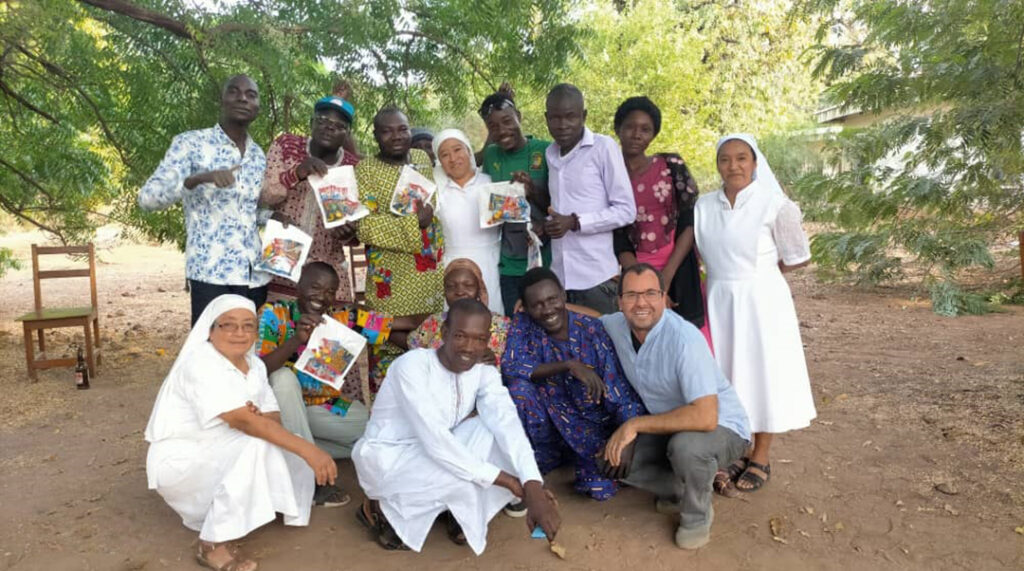
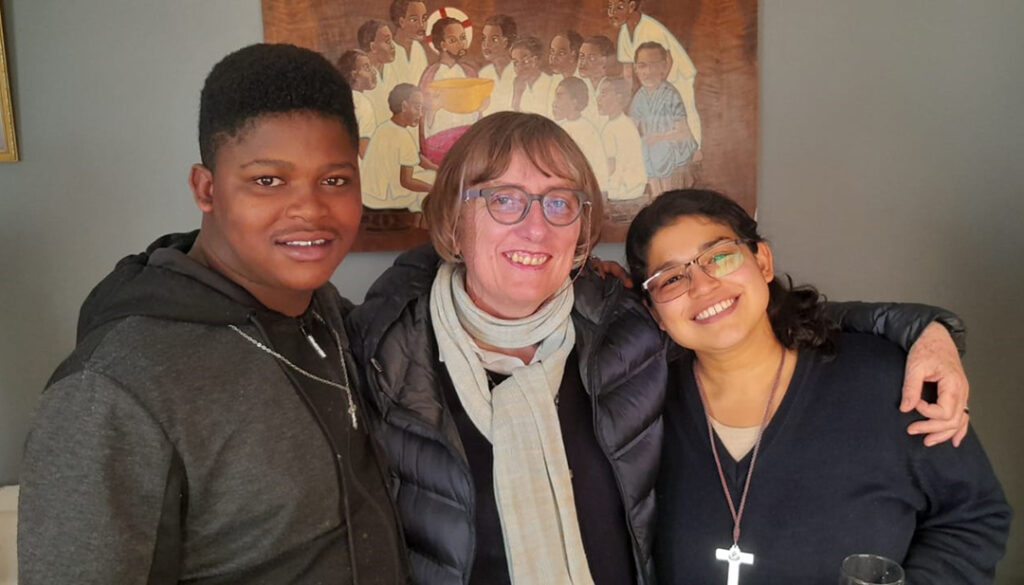
We may experience difficulties in living together when we esteem our culture above the Gospel values, when we consider ourselves defined by our cultural background. Culture is an aspect of who we are; though important, it is not all-defining, because every experience and encounter we make and share in life transforms us into something different. Quoting Pope Paul VI’s words: For the Church, evangelizing means bringing the Good News into all the strata of humanity, and through its influence transforming humanity from within, and making it new [ …] affecting and as it were upsetting, through the power of the Gospel, mankind’s criteria of judgment, determining values, points of interest, lines of thought, sources of inspiration and models of life, which are in contrast with the Word of God and the plan of salvation. All this could be expressed in the following words: what matters is to evangelize man’s culture and cultures […], always taking the person as one’s starting-point and always coming back to the relationships of people among themselves and with God. […] Though independent of cultures, the Gospel and evangelization are not necessarily incompatible with them; rather they are capable of permeating them all without becoming subject to any one of them. […] Every effort must be made to ensure a full evangelization of culture, or more correctly of cultures. They have to be regenerated by an encounter with the Gospel (EN 18-20).
We may experience difficulties in living together when we esteem our culture above the Gospel values, when we consider ourselves defined by our cultural background.
So, Consecrated Life requires us to take a good look at this life itself, realizing that its prophetic call is to evangelize all cultures, by witnessing and proclaiming the God who loves diversity, starting by the way community life is lived and experienced.
A project oriented toward an intercultural community
While multiculturality is a fact, we cannot deny that God’s call in a world of cultural encounters requires commitment by Consecrated people to an evangelical project which involves a conscious decision to live interculturally. Interculturality is, in fact, a choice, a process which requires raised awareness, and actions to be taken and change to happen.
An intercultural community is, therefore, a project that demands a conscious decision to live together and not simply beside one another. The encounter with God, with one another in the community, with people outside the community and with the reality, have to be placed at the centre of our community living. It is not an easy task as we are usually mission-driven and community living is seen simply as a way to “get the job done”. With regards to the encounter with God and the apostolate: these are considered to be matters relating to the individual, while community life is regarded in the context of religious obligations and as a way to make life possible. The conversion which Consecrated individuals are called upon to experience, concerns exactly this aspect. While “synodality” has become the word of the year, we find it difficult to implement it as a way of discerning, planning, and sharing the way we want to live and work. We are called upon to create a space in which we experience meaningful relations, searching together beyond the formal aspect of community life. The witness we can offer in today’s world is that of communities which are able to co-exist in search of God’s will.
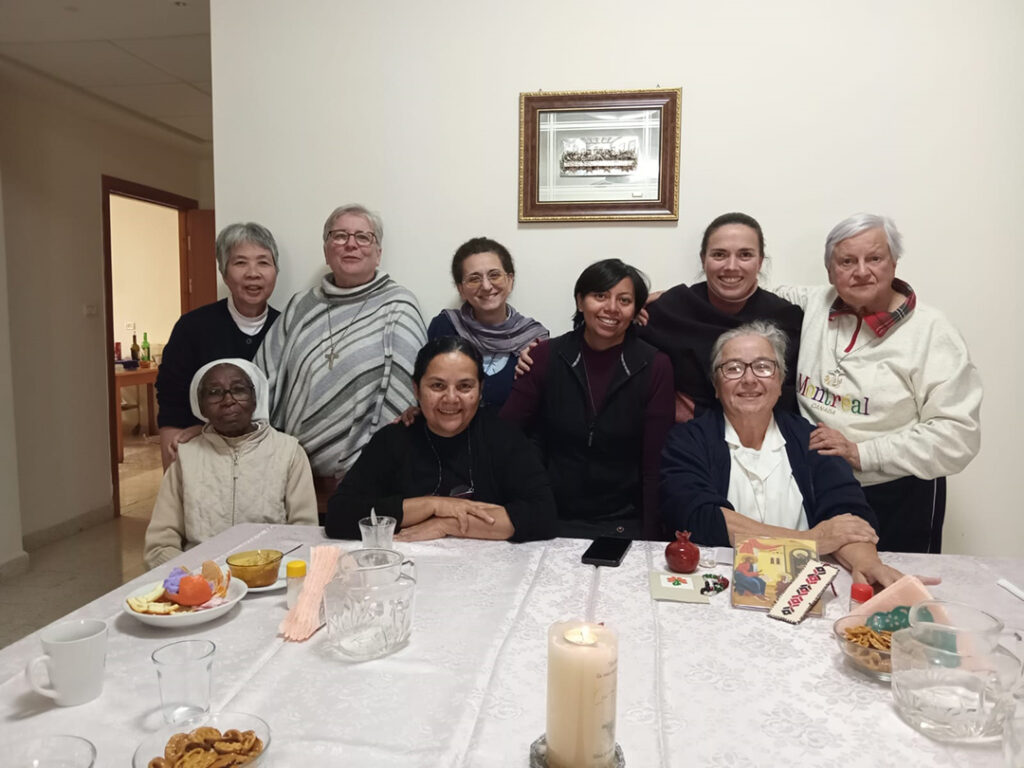
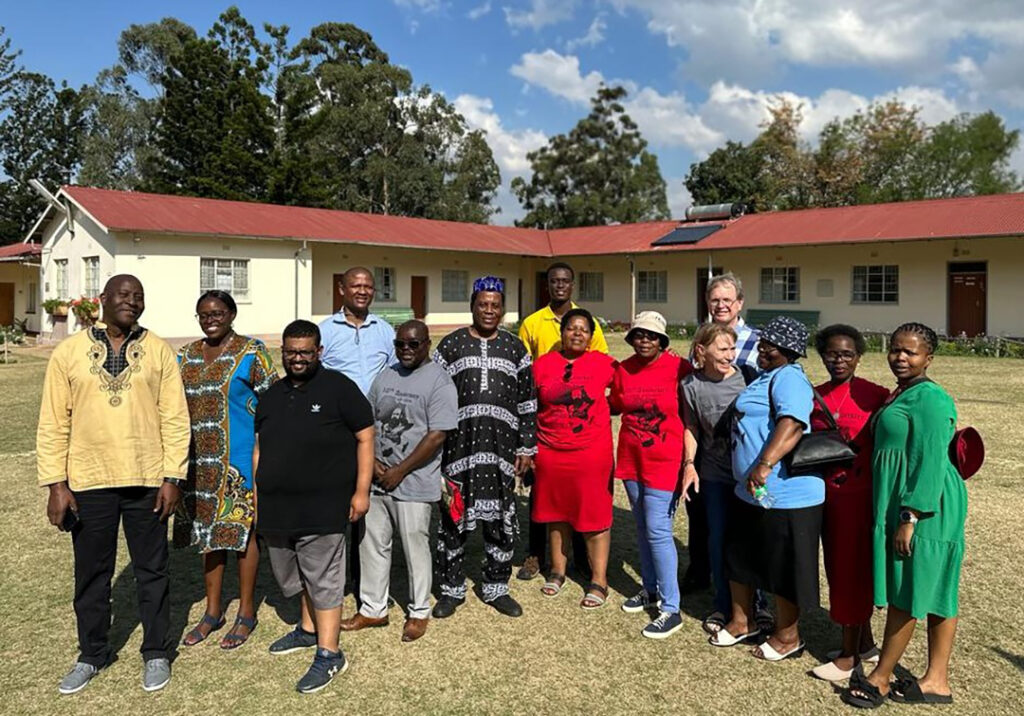
Being a process, interculturality demands of us to be susceptible to changes which involve our reality and not merely our ideals. Life- in- common is a journey, a process that requires the growth of all; all the participants in the community project are committed and open to change. The Congregation for the Institutes of Consecrated Life (2017) affirms: «Internationalization processes should engage all Institutes […] to become laboratories of supportive hospitality where different sensitivities and cultures can gain strength and prophetic meaning». This is possible only if we are ready to freely commit ourselves to a process of encountering, to a conscious choice to meet the other person as he/she is, with his/her personal, relational, historical and cultural complexity. Living together as an intercultural project is never a simple overlapping of cultures, but an intentional encounter which includes the possibility of conflict in the genesis of something new and different, a project of life that is at the service of God and of our brothers and sisters.
In order to be a symbol of hope in a world characterised by division and separation, Consecrated people are called upon to move out of their comfort zones.
In order to be a symbol of hope in a world characterised by division and separation, Consecrated people are called upon to move out of their comfort zones, the “known”, albeit cultural or religious, to search for creative ways to transform themselves and their charism; to become the seed of a more humane way of living which is possible and desirable in the light of the God who calls us to become His/Her disciples in the spreading of the Good News of the Kingdom.

